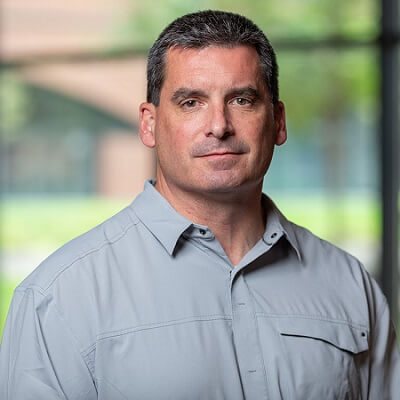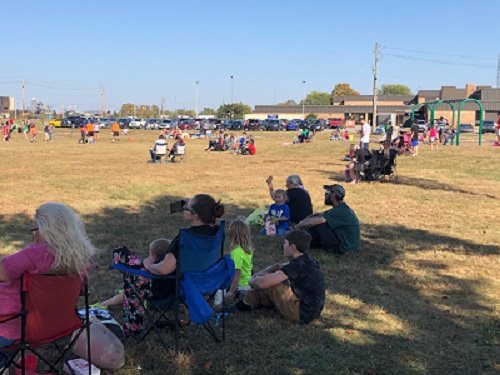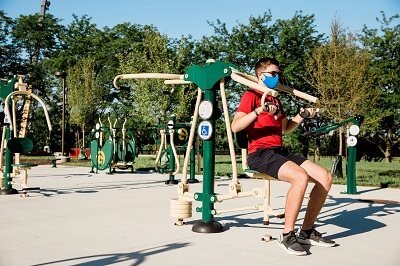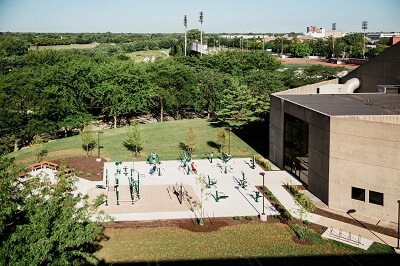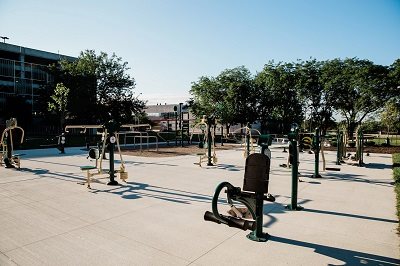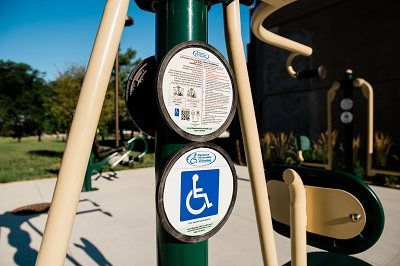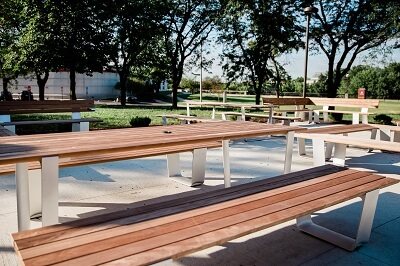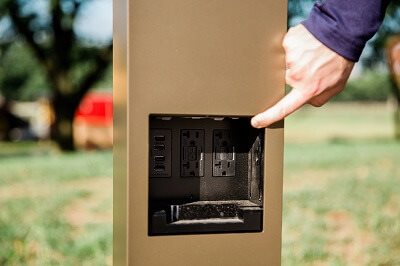Mark Urtel, Ed.D., is the Chair in the Department of Kinesiology at IUPUI. He is a youth sport, fitness, and physical activity specialist who works developing comprehensive school physical activity programs (CSPAP) for school-aged youth to become more physically active. Professor Urtel focuses on building and sustaining campus-community partnerships that engage students in service-learning and other high impact practices. Most of these collaborations are preschool through senior year of high school (p-12) and use the Comprehensive School Physical Activity Program (CSPAP) model.
Professor Urtel was also a key member in the creation of the new IUPUI fitness garden located on the southside of the IUPUI Natatorium entrance. The outdoor installment features easy-to-use gym equipment with 33 fitness stations and sets of equipment, picnic tables and benches for classroom use, and greenery. Designed for wheelchair accessibility, the all-weather equipment offers fitness opportunities in core strength, balance, power, and upper- and lower-body exercises.
No matter the age or fitness ability of an individual, they should feel free to try out the fitness garden; it was purposefully designed with access and accessibility in mind.
"It's pretty novel for an urban institution to have a dedicated and robust fitness garden for the community to use," said Professor Urtel. "We're at the forefront of being inclusive and offering opportunities to enhance health and wellness in a very accessible way."
In his free time, Professor Urtel enjoys bank fishing for bass and playing Magic the Gathering.


